This post may contain affiliate links, which means that I may earn a commission if you click on the link, with no cost for you. It’s one of the ways I support my blog. You can read more about this here.
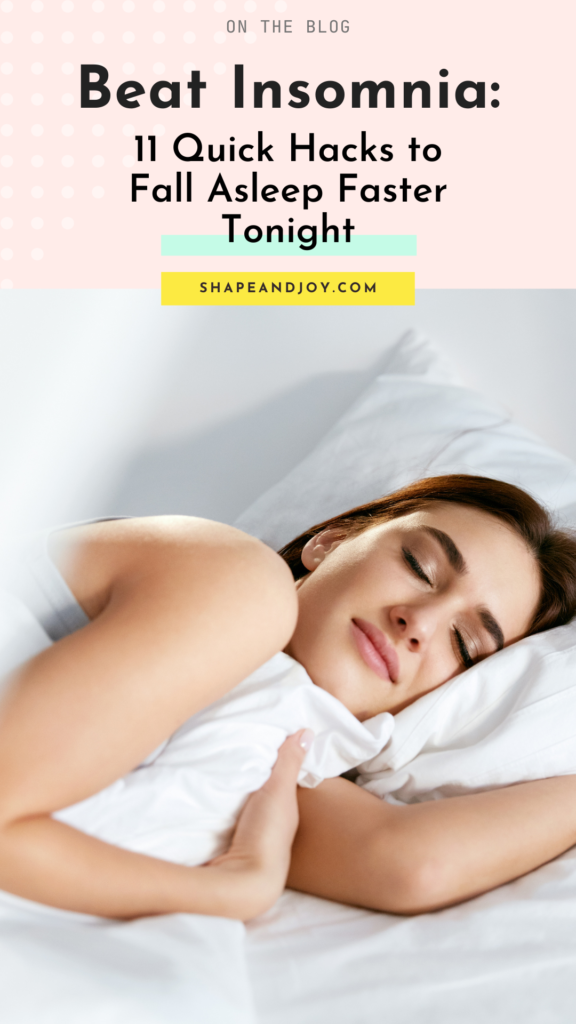
Picture this: you’re lying in bed, staring at the ceiling, convincing yourself you’re not tired, begging the sleep gods to help you fall asleep faster. Meanwhile, your brain’s running a highlight reel of that embarrassing thing you said in 2007.
Sound familiar? Been there, done that, got the bags under my eyes to prove it.
But don’t worry. You’re not doomed to a life of tossing, turning, and watching ASMR videos at 2 AM.
I’ve got you covered with 11 life-changing sleep hacks—because you deserve to fall asleep fast like a baby (the kind that doesn’t wake up every hour, unlike my little one).
Let’s dive into this list of no-nonsense, practical tips to help you fall asleep quickly. Because we’re not here for fluff, we’re here for results.
Why Insomnia Happens (and Why It’s Not Your Fault)
First off, let’s clear something up—you’re not broken. Insomnia happens to the best of us. Maybe you’re stressed, scared, or just overwhelmed with life’s chaos.
If you’re working nights, dealing with kids who think bedtime is optional, or trying to survive that sick season period, it’s no wonder your sleep’s gone AWOL.
I know how it feels—I battled postpartum depression, night-time panic attacks, and even gave hypnotherapy a go (spoiler: didn’t work for me).
But here’s the good news: I found some brilliant sleep strategies that do.
Now, let’s get you sorted with these hacks to help you fall asleep quickly, wake up refreshed, and tackle your day like the superstar you are.
Need more joy in your day? After improving your sleep, check out 15 Happiness Tips That Will Make Life More Enjoyable for a boost!
Hack 1: Keep Your Bedroom a Sleep Sanctuary
Your sleep environment matters more than you think.
If your room’s hotter than a summer heatwave or as bright as a nightclub, it’s no wonder you can’t sleep. Keep it cool, dark, and quiet.
- Invest in blackout curtains and a fan or heater, depending on your needs.
- Keep your bedroom screen-free. Work laptops, phones, and TVs have no business hanging out where you sleep. Not only does blue light mess with your sleep hormones, but seeing that spreadsheet at bedtime isn’t exactly relaxing.
- Declutter your space—yes, that curly bun of clothes in the corner counts!
- Use a white noise machine or an ASMR playlist if silence freaks you out.
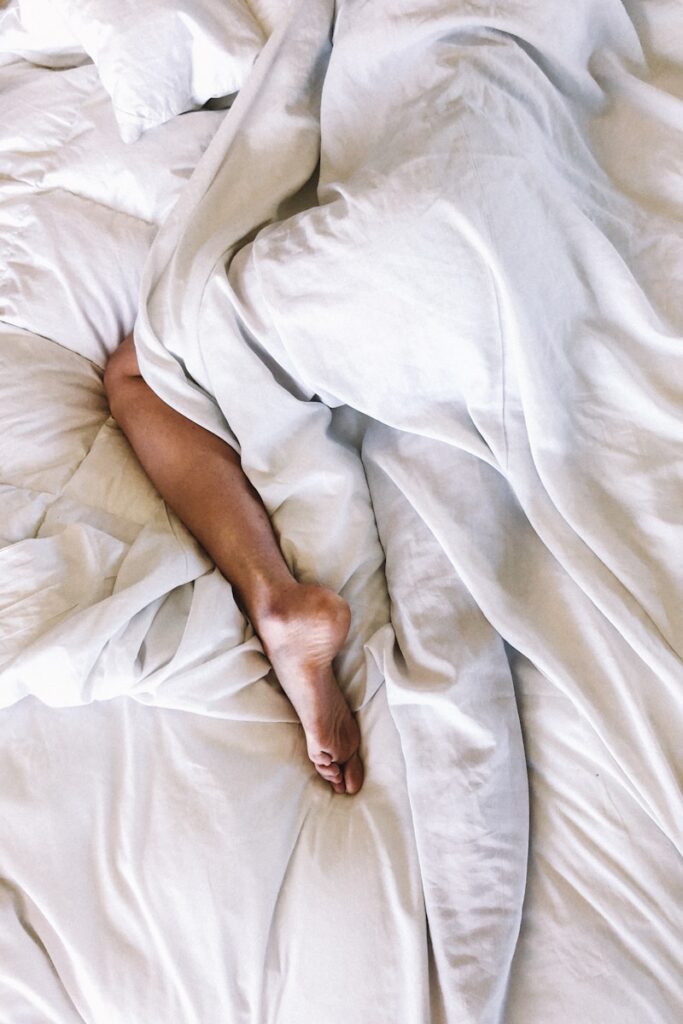
Hack 2: Master the Art of a Bedtime Routine
Your body loves routine. Go to bed and wake up at the same time every day, even on weekends.
- Wind down with a warm drink (decaf, obviously).
- Do something calming, like reading or stretching. Avoid doom-scrolling TikTok—you know it doesn’t help.
Hack 3: Use Pressure Points for Instant Calm
Here’s a little psychological trick I swear by: acupressure. There’s a magic spot on your wrist called the “spirit gate.”
Massage it gently for a minute or two, and you might just feel your stress melt away.
It’s one of those sneaky insomnia remedies that can help, but let’s be real—it’s not a miracle cure.
If your mind is racing at 100 miles an hour, you’ll still need a bit of effort to calm it down.
Want more options? Here are four other acupressure points to try:
- Anmian (Peaceful Sleep): Located just behind your earlobe, in the dip where your neck meets your skull. Apply light pressure to encourage relaxation.
- Shenmen (Heavenly Gate): Found on the upper part of your ear, near the inner curve. This one’s great for reducing anxiety and helping you unwind.
- Tai Chong (Liver 3): On the top of your foot, in the webbing between your big toe and the one next to it. Massage here to ease tension and calm your mind.
- Yin Tang (Third Eye): Right between your eyebrows. Gently press or massage this spot to help quiet your thoughts.
Acupressure is a brilliant tool to have in your bedtime routine, but remember, it works best when combined with other sleep strategies.
Give it a go and see which points work for you!
Craving a slower pace? After mastering your sleep, explore my Lazy Sunday Morning Routine for cosy self-care ideas to unwind this weekend!
Hack 4: Journal the Junk Out of Your Brain
When your mind’s racing faster than a toddler on sugar, grab a pen and notebook.
- Write down your worries, your to-do list, or random thoughts.
- It’s like a brain dump—gets the rubbish out of your head so you can fall asleep peacefully.
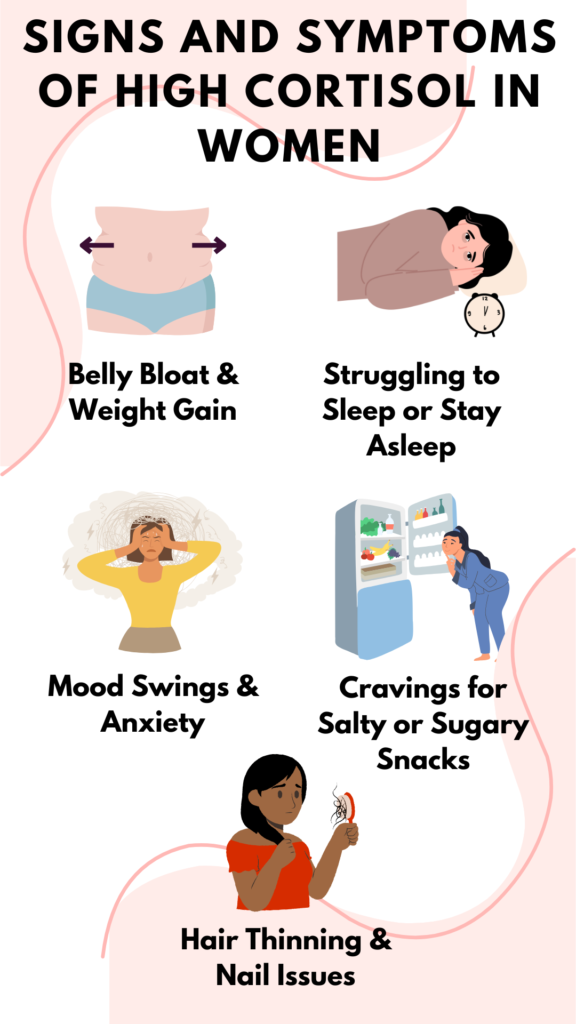
Hack 5: Breathe Like You Mean It
The 4-7-8 breathing technique is my go-to when I’m panicking at night. Breathe in for 4 seconds, hold for 7, exhale for 8. Repeat until you feel your body relax.
It’s like a reset button for your nervous system.
If you’re someone who loves a bit of guidance, the Calm app has some simple breathing techniques for sleep.
Whether it’s 4-7-8 or other methods designed to ease you into relaxation, it’s worth having in your toolkit for those restless nights.
📌 Pin this for later! ⬇
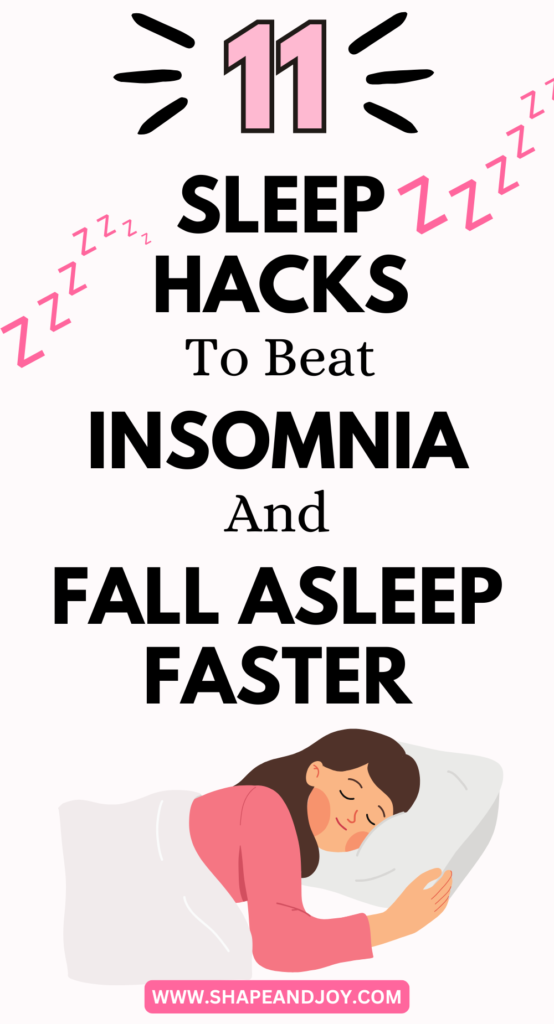
Hack 6: Release Tension with Light Movement and Relaxation
Before you start yelling, “I’m too tired for that!” hear me out. Gentle yoga or stretching can help you fall asleep fast by releasing tension in your muscles.
Think of it as a pre-sleep treat for your body.
A few easy stretches or a relaxing child’s pose can do wonders for calming your mind and preparing you for rest.
If yoga’s not your thing, try progressive muscle relaxation instead. It’s a simple technique that works by tensing and relaxing each muscle group in your body, one at a time. Here’s how to do it:
- Start small. Tense your toes for 5 seconds, then let go completely.
- Move upward. Focus on your calves, thighs, and so on, working your way through each muscle group.
- Don’t skip your face. Relaxing your jaw and forehead can be surprisingly effective.
- Pair it with deep breathing. As you let go of each muscle, imagine the tension melting away.
Hack 7: Snack Smart
Certain foods can help you drift off. Bananas, almonds, and a cheeky bit of dark chocolate are my favourites.
They’re full of magnesium, which is brilliant for calming your body down.
Wondering how nutrition ties into better sleep? Check out 11 Ways to Incorporate Ancestral Nutrition for tips to fuel your modern lifestyle!
Hack 8: Try Sleep Products That Actually Work
I can’t live without my weighted blanket now, it’s one of the best purchases I’ve ever made. They are a game-changer for anxiety and insomnia.
I also swear by pillow sprays—spray a bit on your pillow, and you’ll be out like a light.
Here are my sleep must-haves:
Honestly, this weighted blanket has been a lifesaver for me! It’s like a cosy hug that helps me relax and fall asleep so much faster. I didn’t think it’d make such a difference, but it’s been amazing for stress and those restless nights. You have to try it!
I swear by this lavender pillow spray—it’s been a total game-changer for my bedtime routine. A quick spritz on my pillow, and it feels like I’m in a spa. It’s so calming and really helps me unwind after a stressful day.
I can’t recommend these blue light blocking glasses enough! They’re stylish, comfy, and have been a game-changer for my evenings.
Perfect for unwinding and setting the mood for a great night’s sleep!
This sunrise alarm clock is an all-in-one sleep hero! It’s not just an alarm—it’s a noise machine, mood light, and even a sunrise simulator to gently wake you up. Perfect for better sleep, relaxing nights, and waking up refreshed without the jarring buzz of a regular alarm!
Hack 9: Avoid Screens (No, Really)
I know, I know—Netflix is calling. But blue light messes with your sleep hormones. Switch off your devices an hour before bed.
If you’re really desperate, grab some blue-light-blocking glasses.
Hack 10: Don’t Fight It
If you’re lying there for more than 20 minutes, get up and do something calming.
Read a book, do a puzzle, or even fold laundry (trust me, nothing’s more boring).
Hack 11: Focus on the Good Stuff
When you’re lying in bed, don’t think about how tired you’ll be tomorrow. Instead, imagine something lovely—a holiday, a cosy cabin, or even the smell of freshly baked bread.
Positive visualisation works wonders.
Stress keeping you up? Dive into Cortisol Diet 101 for tips on balancing stress hormones and supporting better sleep naturally!
What Worked for Me (and Can Work for You Too)
As someone who’s been through the wars with postpartum insomnia and night-time panic attacks, I know how hard it can be to quiet your mind and actually get some rest.
For me, it wasn’t just about these sleep tips—I also did some therapy to work through my panic attacks. That combination made all the difference.
I’m not here to promise miracles because let’s be real, life doesn’t work like that.
But I can tell you this: these sleep strategies gave me the tools I needed to make my nights a little easier.
They didn’t fix everything overnight, but they helped me take back some control—and that’s a win in my book.
If I can do it (with a baby, no less), so can you. You’ve got this.
Final Thoughts: Sleep Like You Mean It
Now you’ve got a list of tips, life hacks, and sleep strategies to fall asleep quickly. It’s time to stop dreading bedtime and start owning it.
You’re not alone in this battle, but you are in control.
Try a few of these tonight and let me know how they work for you. Sweet dreams!
📌 Pin this for later! ⬇
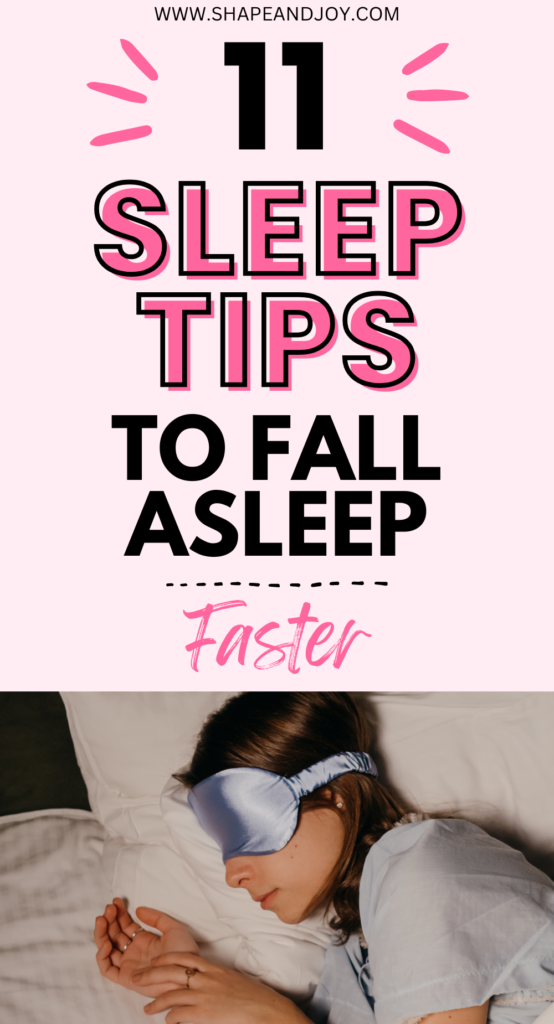
Studies
Studies have demonstrated that acupressure significantly improves sleep quality, reduces sleep disturbances, and decreases nocturnal awakenings. For example, a study with institutionalised residents showed that acupressure effectively reduced sleep latency and improved overall sleep quality (Chen et al., 1999).
Meta-analyses suggest that acupressure and auricular therapy are more effective than no treatment or routine care for insomnia. While evidence is promising, further research is needed to confirm long-term benefits (Yeung et al., 2012).
Progressive muscle relaxation and meditation techniques, such as the 4-7-8 breathing exercise, have been shown to significantly reduce sleep onset latency and promote relaxation, supporting their use as complementary sleep aids (Woolfolk et al., 1976).
A systematic review found evidence that integrating cognitive-behavioural therapy with acupressure provides additional benefits for insomnia sufferers, including improvements in fatigue and daytime function (Ho et al., 2021).
Research supports the use of yoga and light stretching to reduce muscle tension and prepare the body for rest. A breathing technique studied in insomniacs was found to promote drowsiness effectively (Farrow, 2006).






